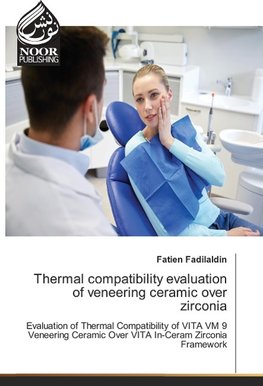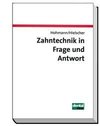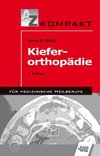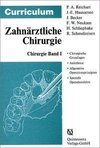
-
 Anglický jazyk
Anglický jazyk
Thermal compatibility evaluation of veneering ceramic over zirconia
Autor: Fatien Fadilaldin
The residual stresses generated during manufacturing of zirconia prostheses is the origin of unstable chipping observed clinically. The aim of this study was to analyzing the influence of porcelain thickness and the implemented cooling protocol on the magnitude... Viac o knihe
Na objednávku
46.17 €
bežná cena: 51.30 €
O knihe
The residual stresses generated during manufacturing of zirconia prostheses is the origin of unstable chipping observed clinically. The aim of this study was to analyzing the influence of porcelain thickness and the implemented cooling protocol on the magnitude of the developed residual stresses. 60 rectangular bilayered plates and thermal shock test were used to investigate the propensity for chipping, and to show the thermal residual stress resistance of the structure. Two different thickness ratios of 1:1and 1:2 mm, either rapidly or slowly cooled from sintering temperature to Tg were tested. The results demonstrated that the tested VITA VM 9 veneering ceramic and VITA In-Ceram combination had a lowest thermal shock resistance of 120 oC, with no significant differences emerging between the groups (P>0.05). In addition, 100% of the samples failed cohesively and no delamination were identified. The tested system showed adequate thermal shock resistance, however with the most failed samples showed horizontal crack propagation that probably driven by compressive stresses provides a motive toward investigating a perfect TEC matching concept between the core and the veneering ceramic.
- Vydavateľstvo: Noor Publishing
- Rok vydania: 2017
- Formát: Paperback
- Rozmer: 220 x 150 mm
- Jazyk: Anglický jazyk
- ISBN: 9783330967465




 Nemecký jazyk
Nemecký jazyk 




 Španielsky jazyk
Španielsky jazyk 


